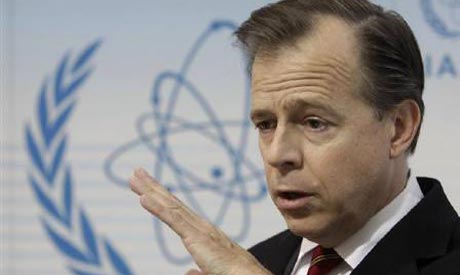
US envoy to the IAEA Glyn Davies (Photo:Reuters)
Iran's latest letter to the EU's foreign policy chief does not contain any new commitments by Tehran to fully address growing international concerns about its disputed nuclear programme, a senior U.S. official said on Wednesday.
Glyn Davies, U.S. ambassador to the U.N. nuclear watchdog, said the six major powers were discussing how to react diplomatically to the letter from Iranian nuclear negotiator Saeed Jalili to the European Union's Catherine Ashton, in which Jalili said Iran was ready to resume stalled talks.
"I don't see from the standpoint of the work that is going on here anything new by way of an Iranian commitment to fully address the concerns that the international community has," Davies told reporters.
But, he added, "I don't want to get out ahead of diplomatic discussions yet to take place (under Ashton's leadership) to decide on next steps -- whether, when and how to engage with the Iranians based on that letter."
Jalili's letter, dated Sept. 6 and obtained by Reuters on Tuesday, expressed readiness for fresh talks with the powers.
But it also made clear that Tehran will not back down on its "rights" in its long-running nuclear row with the West.
Talks could resume "as soon as you are ready," Jalili's letter, in English, said. "The Islamic Republic of Iran believes that a just negotiation and talk is the only way to remove existing misunderstandings in all areas."
Jalili spoke of the "necessity of achieving a comprehensive, long-term and negotiated solution for both sides".
Iran has often said it is willing to resume talks. But its insistence that other countries recognise its right to enrich uranium is a major stumbling block, particularly for Western diplomats who see it as an unacceptable pre-condition.
Uranium enriched to a low level of fissile purity is suitable for running civilian nuclear power plants. If refined to a much higher degree, it can form the core of nuclear bombs.
A spokesman for Ashton, who in December and January led two rounds of discussions with Iran on behalf of Britain, China, France, Germany, Russia and the United States, said on Sunday Jalili's letter would be studied "carefully."
Short link: